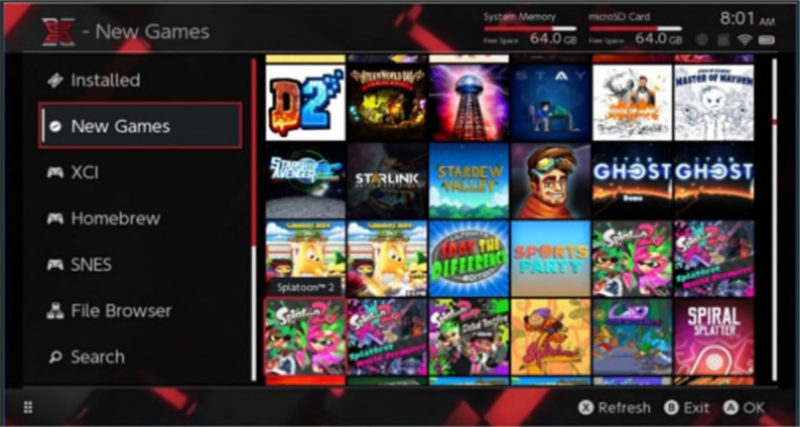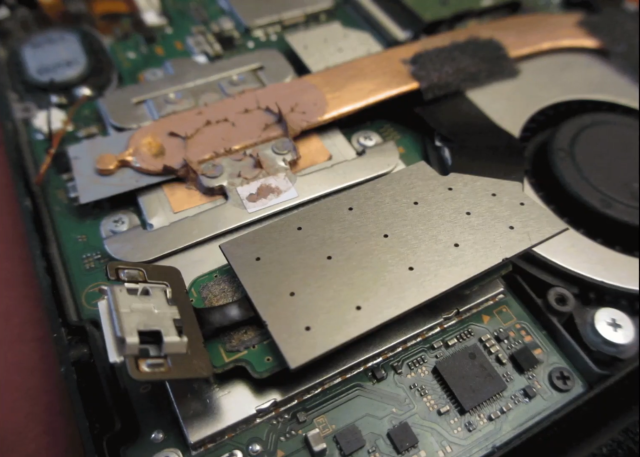

reader comments
63 with 54 posters participating, including story author
Nintendo is going to court to stop a number of retailers that allegedly sell a Switch modification device that allows users to play pirated games on older versions of the system. But the console maker is also using those lawsuits to warn retailers away from taking pre-orders for an impending hardware hack designed to work on more recent Switch consoles, including the Switch Lite.
The lawsuits—obtained by Polygon after their filing in Ohio and Seattle courts on Friday—focus on websites that sell products from hacking collective Team-Xecuter. That group currently manufactures the SX Pro, a simple USB device which allows users to install a custom “SX OS” operating system on the Switch from a memory card. With SX OS installed, users can “play virtually any pirated game made for the Nintendo Switch, all without authorization or paying a dime to Nintendo or to any of the large number of authorized game publishers making games for Nintendo Switch,” according to the filings.
The SX Pro only works with the roughly 20 million Switch consoles released before June 2018, which were susceptible to an unpatchable exploit in their Nvidia Tegra CPUs. The 35 million Switch and Switch Lite systems since then sport an updated chipset that cannot be hacked using that exploit.
But Nintendo notes in its lawsuits that Team-Xecuter says it is nearing release of new Switch-hacking devices, dubbed SX Core and SX Lite, which can install SX OS on any Switch console, including those with updated chipsets.
Watch out for solder burns
Unlike the relatively simple, strictly external hacks for older Switch models, Team-Xecuter’s new SX models for Switch hacking seem to involve opening up the console and soldering a small SD card reader directly onto the main motherboard. Team-Xecuter first teased those new models last October before showing a preview of the new device running SX OS on a Switch Lite back in December. The Team then sent these updated SX units to testers and reviewers earlier this month, according to its website.

In its lawsuits, Nintendo takes direct aim at the retailers offering pre-orders for Team-Xecuter’s new offerings and warns of their potential effect on its business.
“On information and belief, Defendants have accepted and confirmed hundreds of other preorders for the SX Core and the SX Lite throughout the United States, and plan to ship the products to purchasers when they become available, which is expected imminently,” the company writes.
“The scale of potential harm from Defendants’ trafficking in the SX Core and SX Lite is astounding, threatening the circumvention of the Technological Measures protecting more than 35 million additional Nintendo Switch and Nintendo Switch Lite consoles currently in the marketplace (on top of the 20 million pre-June 2018 Nintendo Switch consoles),” the lawsuits continue.
Badly Xecuter-ed?
Team-Xecuter has something of a controversial reputation in the Switch-hacking community. That’s because of its focus on profiting from what are otherwise generally open source efforts to identify and publicize vulnerabilities in console hardware. Team-Xeceuter also markets its devices with a specific focus on decrypting and copying legitimate software, while open source hackers tend to keep the focus on installing homebrew software and custom firmware that doesn’t directly enable piracy.
“I do strongly disagree with the idea of hiding software exploits and then releasing modchips that use (potentially obfuscated) versions of them,” Kate Temkin, a member of the ReSwitched Team collective that originally hacked the system, told Ars in 2018. “I think it’s both unethical—as it gives malicious actors a chance to pick up and use the vulnerabilities before they can be addressed or public knowledge can spread—and against the spirit of knowledge-exchange we want to see in the console-hacking community.”
“It’s difficult to balance the goals of ‘opening up’ closed hardware and preventing things like piracy,” Temkin added. “Unfortunately, enabling people to have full access to their systems inevitably means that some people are going to use that access in ways we don’t agree with.”
Team-Xecuter also attracted some negative attention in 2018 with the prominent anti-piracy protections on its own piracy-enabling SX OS software. “We do implement inconveniences to safeguard anti-tampering of our SX OS boot file to remain at a competitive advantage,” Team-Xecuter told The Verge at the time.
In addition to damages of up to $2,500 per sale, Nintendo is seeking court orders to block the further sale of all Team-Xeceuter hacking devices from the identified retailers and for the “seizure, impoundment, and destruction of all Circumvention Devices.”


